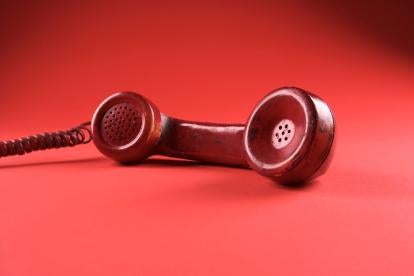A plaintiff must allege his injury with some plausibility to move forward with TCPA claims, even for claims against a TCPA scofflaw. That is the lesson from a recent opinion out of Eastern District of New York granting defendants’ motion to dismiss a nationwide TCPA class action. Zeitlin v. Palumbo, 2021 U.S. Dist. LEXIS 66512, *1 (E.D.N.Y. April 6, 2021).
The lawsuit here related to a criminal complaint filed by the DOJ. The DOJ alleged that the Defendants participated in illegal robocalling schemes:
Based abroad, fraudsters use robocalling technology to send millions of calls with the same prerecorded message. It purports to arrive from a government agency–such as the Social Security Administration or the Internal Revenue Service–using ‘spoofing’ technology to mask its true origin. The prerecorded message claims that the recipient has been implicated in criminal activity. The vulnerable, gullible, and frightened often respond to these calls, and fraudsters say that the only way to address the problem is to send money or personal information.
In that related criminal case, the DOJ seeks to hold Defendants responsible for wire fraud, and it has already obtained a preliminary injunction.
One day after the DOJ filed its remarkable complaint, Plaintiff filed a TCPA class action against the same Defendants. Plaintiff’s piggyback complaint had one glaring problem: he “did not allege that he actually received a call from” either of the Defendants. Instead, he alleged only that the “likelihood is high that [Defendants] were involved with calls received by Plaintiff.”
Carefully applying Second Circuit and Supreme Court precedent, the Court concluded that the allegations did not state a claim: “Plaintiff offers virtually no information that would connect Defendants to the calls he received. Instead, he suggests that if Defendants facilitated millions of robocalls, and he received robocalls, then he may allege ‘upon information and belief,’ that he received robocalls that ‘were made, carried, processed, connected, placed, routed, and/or facilitated by [Defendants] and/or their agents[.]”
The Court explained that Plaintiff’s request for “discovery to connect Defendants to the calls [is an admission] that he cannot satisfy the Twomby/Iqbal standard.” And, moreover, “discovery is authorized solely for parties to develop the facts in a lawsuit in which a plaintiff has stated a legally cognizable claim, not in order to permit a plaintiff to find out whether he has such a claim.” On balance, the Court must guard against “the danger of ‘fishing expeditions,'” including a proliferation of “barebones complaints” against defendants with “little or no evidence of statutory violations[.]”
In a pyrrhic victory for Plaintiff, the Court denied Defendants’ request for Rule 11 sanctions. The Court noted that Plaintiff “at least has been candid that he needs discovery to connect Defendants to the robocalls he received.”
This is likely not the last time we hear about this case. But it provides an important reminder that the current pleading standard requires a nexus to the harm–even when the defendants may be involved in an extensive and fraudulent robocall fraud.




 />i
/>i

